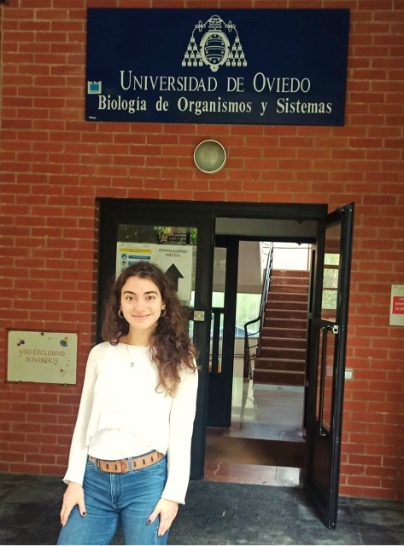 SCAR Fellow María Piotto has provided a report on her Fellowship project titled “HMSC-Antar: A quantitative approach to infer the ecological processes underlying climate-driven shifts in Antarctic benthic communities”. The Fellowship was hosted by Dr. Teresa Morán López at the Department of Biology of Organisms and Systems, Universidad de Oviedo, Spain. At the time of her Fellowship, María was a PhD student at the Instituto de Diversidad y Ecología Animal, Consejo Nacional de Investigaciones Científicas y Técnicas, Universidad Nacional de Córdoba, Argentina.
SCAR Fellow María Piotto has provided a report on her Fellowship project titled “HMSC-Antar: A quantitative approach to infer the ecological processes underlying climate-driven shifts in Antarctic benthic communities”. The Fellowship was hosted by Dr. Teresa Morán López at the Department of Biology of Organisms and Systems, Universidad de Oviedo, Spain. At the time of her Fellowship, María was a PhD student at the Instituto de Diversidad y Ecología Animal, Consejo Nacional de Investigaciones Científicas y Técnicas, Universidad Nacional de Córdoba, Argentina.
The Antarctic Peninsula has experienced significant warming, with climate-driven changes affecting benthic ecosystems, particularly through ice scouring and increased sedimentation. María’s project aimed to analyze shifts in the composition of these benthic communities over time, using Hierarchical Models of Species Communities (HMSC) to quantify species’ responses to environmental factors like sedimentation and ice disturbance. Her work provided robust estimates of the vulnerability of benthic assemblages to climate-change drivers, identified species traits that modulate their responses, and highlighted sentinel species that can serve as early bioindicators of ecosystem change. This research is among the first to investigate the ecological processes driving long-term shifts in Antarctic benthic assemblages and represents a vital contribution to understanding the resilience of these ecosystems.
The outputs of this Fellowship include extensive datasets on species traits, phylogeny, and environmental factors, with two manuscripts currently in preparation. María presented her findings at the 2024 SCAR Open Science Conference in Pucón, Chile, and the methods and tools she developed will be made available to the wider scientific community to facilitate further research.
